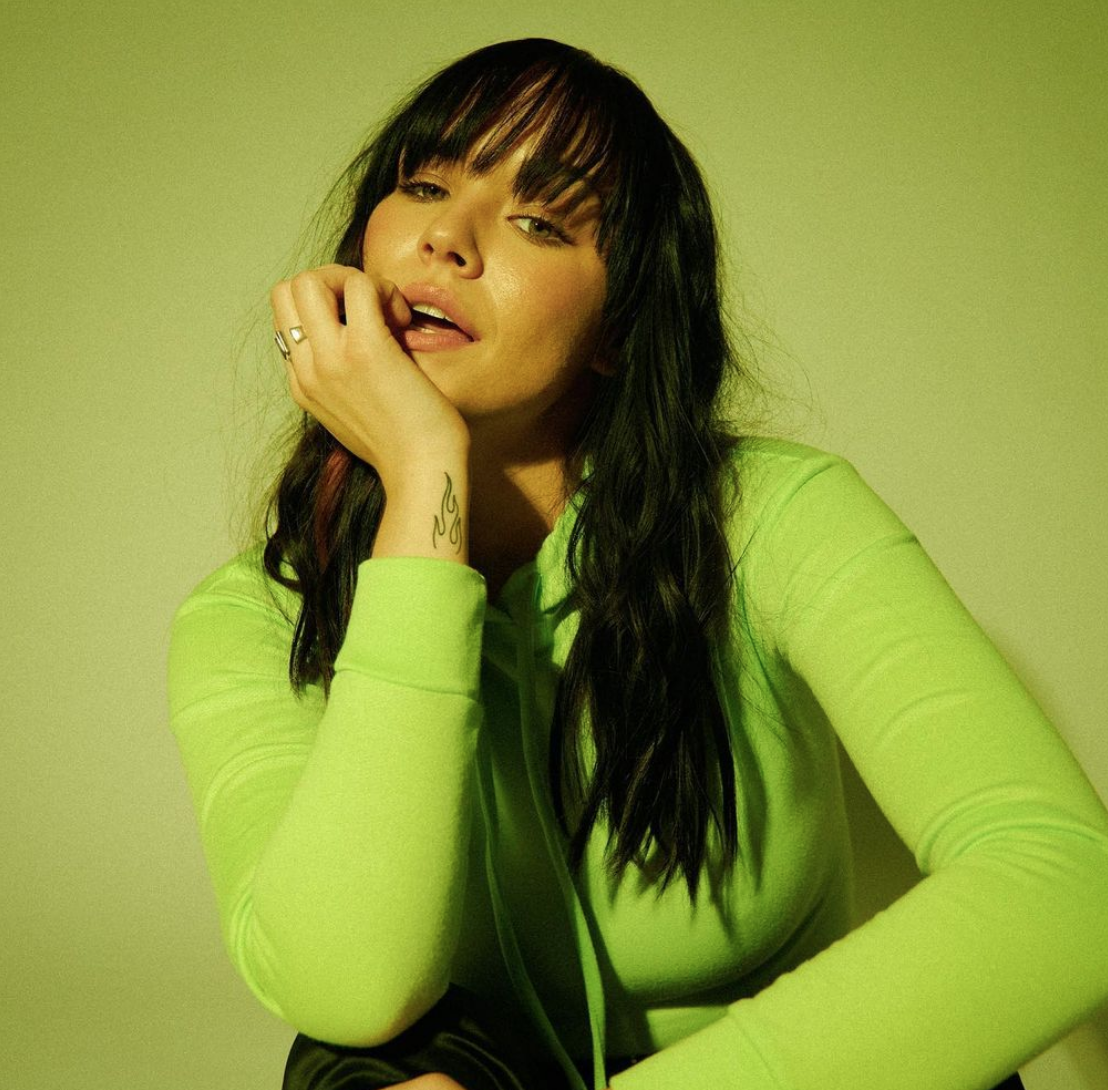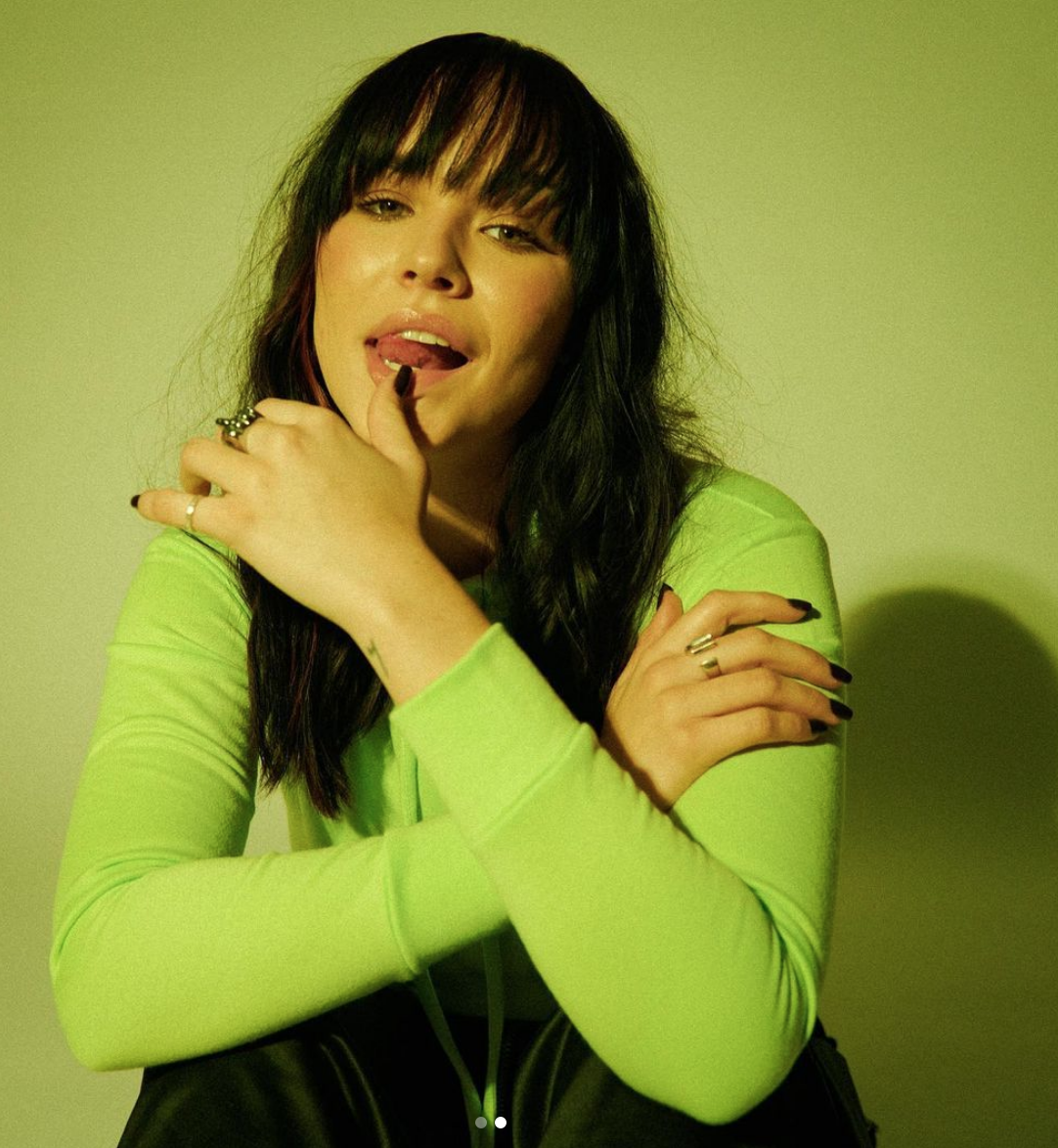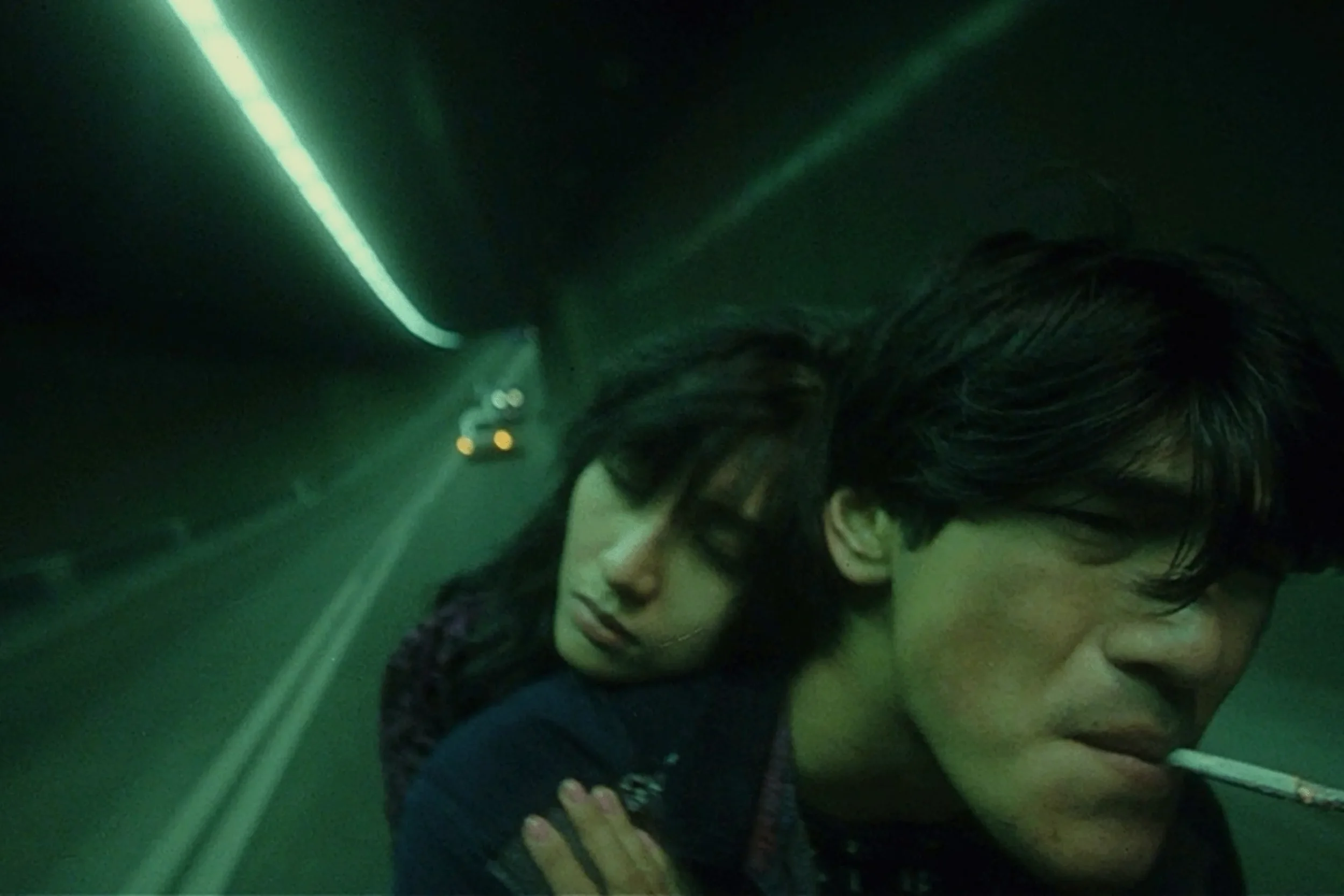UPSAHL
Proof that the age of female power pop is forever, at 21 years old UPSAHL has a resume that already includes a plethora of musical milestones. Playing SXSW and Lollapalooza, working closely with the likes of Dua Lipa, Billie Eilish, and Broodz, we were very excited to get some perspective on the life and inner workings of this home-grown powerhouse from Phoenix.
Your music has a very familiar honesty about the clash that exists between being a ‘strong independent womxn’ and the internal ‘sad and lonely’ outlook of the feminine experience. It’s not a new narrative in solo womxn’s music. Do you think music being tinged with vulnerability weakens the image of someone singing about their own life in a powerful way? Is there some of your lived experience as a womxn in the music world where this style of storytelling hits as necessary, and if so, were you consciously making the choice to tell your stories in that way?
I think there is something so empowering about being vulnerable, especially when song writing. As a woman in music, I feel that there’s this constant instinct to make “bad bitch music” as a response to a sexist and male dominated industry. I definitely had that outlook when I first started releasing songs under a major label. I knew that I wanted to empower people, especially from a feminine perspective, but it seemed that sometimes the only way to do that was through being overly “badass” or having that “I don’t give a fuck” attitude. But that’s not real life. I don’t always feel badass and I do give a fuck sometimes, even when I don’t want to. At the beginning of this year I learnt that being vulnerable and honest in song writing is actually the most badass and empowering thing to do, so I tried to embrace that in the Young Life Crisis EP and the music I’ve been making since.
Is there an inverse empowerment through romanticising or simplifying the feminine experience that we’ve previously been exposed in music? Is there maybe accessibility through the beauty we hear in that music that makes us able to think about what we can, instead of what we can’t do?
As an artist with a platform, no matter how big or small, I feel a sense of responsibility for making sure that my music is an authentic depiction of where I’m at in my life. With this last EP I wanted to tell the story of my young life crisis that I had in 2020, so hopefully the lyrics are relatable to people who listen and will maybe make them feel less alone.
You grew up in a family where you were involved in everything that came with being a musician from a young age: playing, touring, getting paid. Do you have any thoughts about whether there is a similarity between the romantic vision of being a musician versus the reality of a musicians life, or further the romantic version of being a womxns in music versus the reality of being that womxn?
My dad was touring in punk bands while I was growing up, so watching him play shows was the most inspiring thing ever. It not only made me realise that I wanted to be the one on stage, but I also just became obsessed with the culture and the music scene and knew that I had to be a part of it. Now that I’m in it, the life of a female artist is definitely glamourized, but that’s part of the fun. I feel like the second you go on stage all of the other problems in your life disappear. People in the audience are seeing a version of you that is just fully in the moment, without a care in the world except for putting on a killer show. I guess that energy is the reason why it all seems glamourized, as artists we just deal with our personal shit after the show is done!
When it comes to choice within your own music, how much independence and agency over your narrative do you have to give away to make the best songs? And what specifically do you keep as your own regardless of outside influence?
I think the best songs are the ones that feel the most authentic to the artist. If the artist doesn’t fuck with it, how is everyone else supposed to? I learned that pretty early on, so I’m super conscious of making sure the music I’m making feels right to me. I get to work with such rad people that share the same vision for my music as me, so I feel pretty lucky.
Musically you’ve gone from kind of early percussive rhythm to tightly controlled production, but it is consistent in having a focal point of synchronisation between your voice and the beat regardless of shifts in genre. When you play live you just look so comfortable and like you’re having so much fun. How much does comfort in your own aesthetic play into how malleable you can be with different types of music?
I am still learning more and more about myself every day. My music naturally evolves and grows with that, so my sound is constantly going to be changing. At the end of the day I grew up around punk rock music, so that will always come into play, regardless of the genre of music I’m making. I also feel like I have a sense of what I like and don’t like when making music, just by kind of following my instincts. I have no clue what kind of music I’ll be making five years from now, but I do know that it’s going to be an accurate representation of where I’m at in life and what’s inspiring me at the moment.
Words by Alex Officer / Second & Third images shot by Kohl Murdock / Listen to UPSAHL here / See more here













